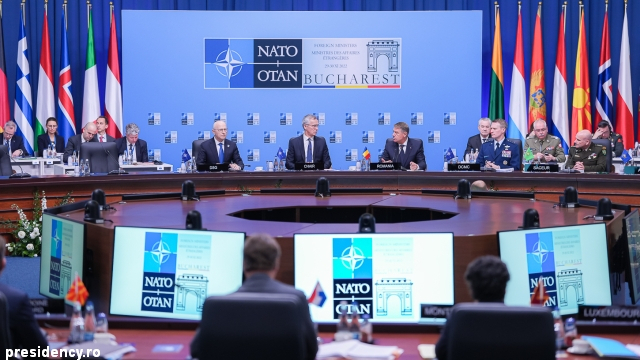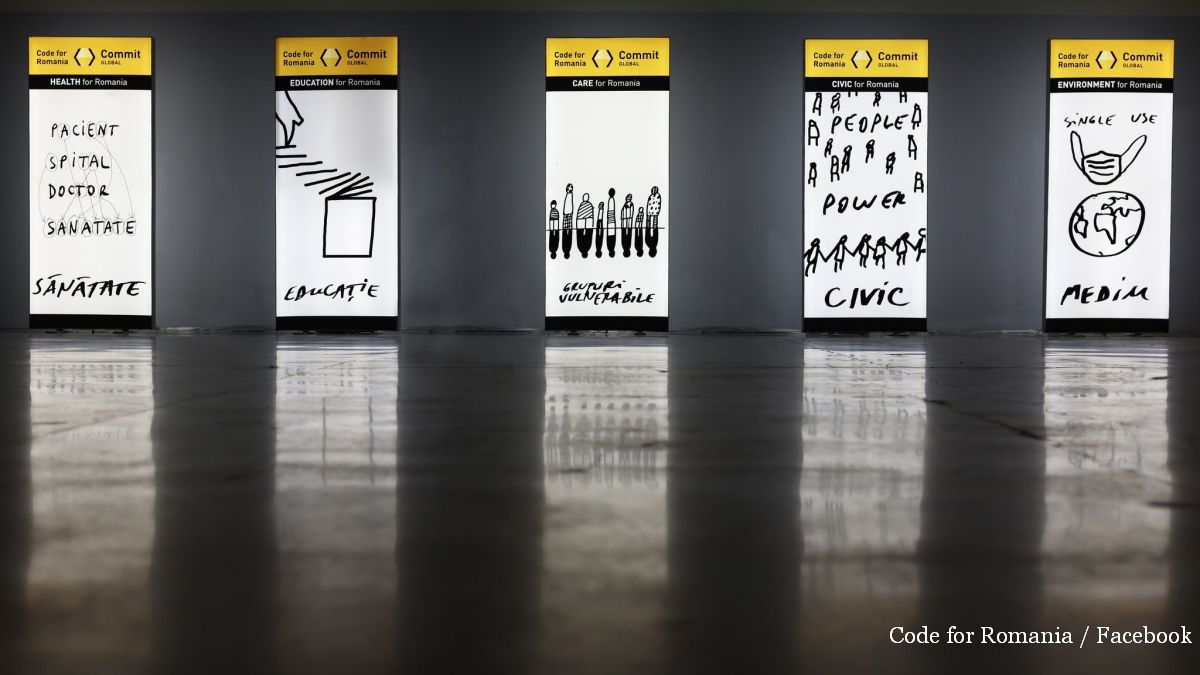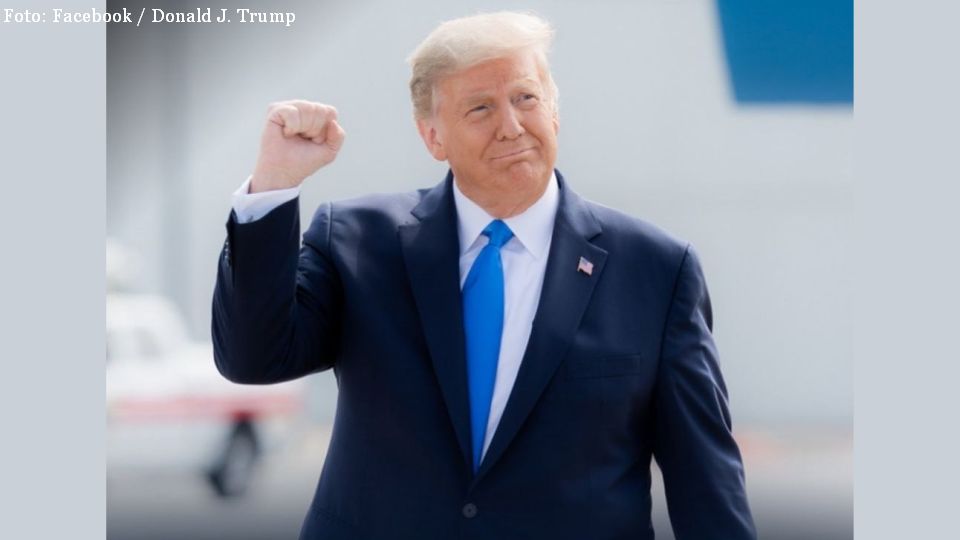Challenges for Allies
China remains a 'challenge' for NATO allies

Corina Cristea, 08.12.2022, 19:04
China
remains a ‘challenge’ for NATO allies, as defined at the summit of
the alliance in Madrid, along with the situation in Ukraine. The
organization is worried about China beefing up its military, and its
cooperation with Russia, according to US Secretary of State Antony
Blinken, after a ministerial meeting of the alliance hosted by
Romania. Secretary Blinken explained that the concerning issues about
China are use of disinformation, fast and opaque military ascension,
and cooperation with Russia. The long term challenges that Beijing
provides for the interests, values, and security for the allies had a
special place at the talks held in Bucharest. Here is what NATO
Secretary General Jens Stoltenberg said:
NATO is an alliance of Europe and North America, but the challenges we face are global. We must adress them together in NATO. We do not see China as an adversary; we will continue to engage with China when it is in our interest. Not least to convey our united position on Russia’s illegal war in Ukraine. Ministers considered China’s ambitious military developments, its technological advances, and its growing cyber and hybrid activities. The war in Ukraine has demonstrated our dangerous dependency on Russian gas. This should also lead us to assess our dependency on other authoritarian regimes, not least China, for our supply chains, technology, or infrastructure. We will continue, of course, to trade and engage economically with China, but we have to be aware of our dependencies, reduce our vulnerabilities, and manage the risks.
In
Bucharest, NATO ministers also talked about the expansion of the
organization by integrating Sweden and Finland, along with terrorism,
the gravest asymmetric threat, and about enhancing custom aid for
Bosnia-Herzegovina, Georgia, and the Republic of Moldova, which are
alliance partners. They also discussed consolidating capabilities,
reforms, and training in improving security and defense institutions
for these countries. However, the elephant in the room at the meeting
was the war that Russia carries out in Ukraine, with all its
consequences. This late November NATO meeting noted that Ukraine has
made significant progress in the face of Russian invasion, but that
Russia must not be underestimated, as its missiles continue to strike
cities, civilians, and critical infrastructure in Ukraine. Secretary
Stoltenberg emphasized that NATO must make sure that Ukraine is
victorious against Russia, and that the most urgent task is to make
sure that Ukraine will triumph as a sovereing, democratic, and
independent nation in Europe. He explained that in order to achieve
that, there must be constant and large scale military, financial, and
humanitarian support, which is what is going on now. In Bucharest,
the allies announced significant contributions to the NATO
comprehensive assistance package, which offers Ukraine
less-than-lethal aid, including fuel and generators. This aid is
extremely important, since the end of the war is nowhere in sight. We
asked an expert if we can anticipate what Russia’s objective is long
term. Providing the answer for Radio Romania was Professor Dan
Dungaciu, director of the Romanian Academy Institute for Political
Science and International Relations. He said that Moscow is, first
and foremost, interested for any negotiations to happen while Russia
is still in the field:
The
moment negotiations start and Russian troops are on Ukraine’s
territory, irrespective of the geography of the presence, which is
now at 15% of territory, then Russia is at an advantage. It is at an
advantage for two reasons. One: it is very capable in carrying out
negotiations, trying to exonerate the occupier and placing themselves
in a negotiation position as if they were neutral towards, and the
equal of, Ukraine. Russia has a lot of practice in this, it did the
same with Georgia, with Transnistria, they simply ignored their
status as an occupier and simply acted as a player in the
negotiations. And two: this would be convenient for Russia, because
there is a psychological change in the Russian Federation, including
among the population. This explains to some extent the great amount
of acceptance that Putin still enjoys at home. He spread the message
in the Russian Federation across the population that this war is with
the West, meaning the EU, NATO, and the US. The moment Russia alleges
that they are fighting the West, the status of victory or defeat
changes radically. It no longer matters what the roadmap was for the
so-called ‘special operation’. There is no longer talk of Russia and
Ukraine, even the term special operation is no longer used much. Now
it is all about the fight with the West, and victory for the Russian
Federation no longer means reaching their initial war aims, it
simply means resistance.
Dan
Dungaciu explained that if the Russian Federation is not defeated in
Ukraine, this matter can be used by the Kremlin, by President Putin,
by the state authorities, in the dialog with the population. They can
claim that the entire West, in alliance with Ukraine, was incapable
of defeating them.






























